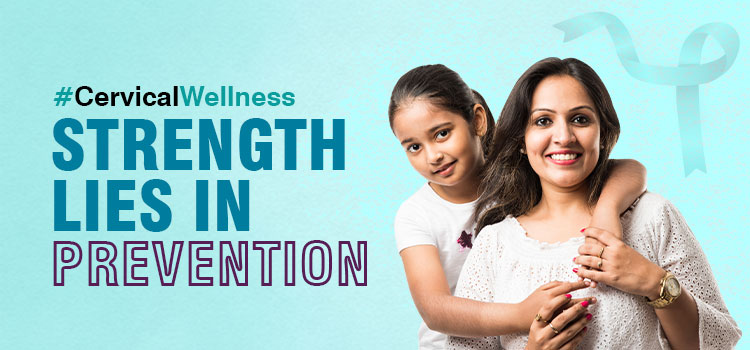Globally, cervical cancer is the fourth most common cancer in women, with 6,04,000 new cases in 2020. Women living with HIV are 6 times more likely to develop cervical cancer, compared to the general population, and an estimated 5% of all cervical cancer cases are attributable to HIV. The contribution of HIV to cervical cancer disproportionately affects younger women, and as a result, 20% of children who lose their mother to cancer do so due to cervical cancer.
Causes
Human papillomavirus (HPV) is a common sexually transmitted infection which can affect the skin, genital area and throat. Almost all sexually active people will be infected at some point in their lives, usually without symptoms. In most cases the immune system clears HPV from the body. Persistent infection with high-risk HPV can cause abnormal cells to develop, which go on to become cancer.
Persistent HPV infection of the cervix (the lower part of the uterus or womb, which opens into the vagina – also called the birth canal) if left untreated, causes 95% of cervical cancers. Typically, it takes 15–20 years for abnormal cells to become cancer, but in women with weakened immune systems, such as untreated HIV, this process can be faster and take 5–10 years. Risk factors for cancer progression include the grade of oncogenicity of the HPV type, immune status, the presence of other sexually transmitted infections, number of births, young age at first pregnancy, hormonal contraceptive use, and smoking.
Prevention
- Being vaccinated at age 9–14 years is a very effective way to prevent HPV infection, cervical cancer and other HPV-related cancers.
- Screening from the age of 30 (25 years in women living with HIV) can detect cervical disease, which when treated, also prevents cervical cancer.
- At any age with symptoms or concerns, early detection followed by prompt quality treatment can cure cervical cancer.
HPV Vaccination
As of 2023, there are 6 HPV vaccines available globally. All protect against the high-risk HPV types 16 and 18, which cause most cervical cancers, and have been shown to be safe and effective in preventing HPV infection and cervical cancer.
HPV vaccines should be given to all girls aged 9–14 years, before they become sexually active. The vaccine may be given as 1 or 2 doses. People with reduced immune systems should ideally receive 2 or 3 doses. Some countries have also chosen to vaccinate boys to further reduce the prevalence of HPV in the community and to prevent cancers in men caused by HPV.
Early detection, diagnosis and treatment of cervical cancer
Cervical cancer can be cured if diagnosed and treated at an early stage of disease. Recognizing symptoms and seeking medical advice to address any concerns is a critical step. Women should see a healthcare professional if they notice:
- unusual bleeding between periods, after menopause, or after sexual intercourse
- increased or foul-smelling vaginal discharge
- symptoms like persistent pain in the back, legs, or pelvis
- weight loss, fatigue and loss of appetite
- vaginal discomfort
- swelling in the legs.



